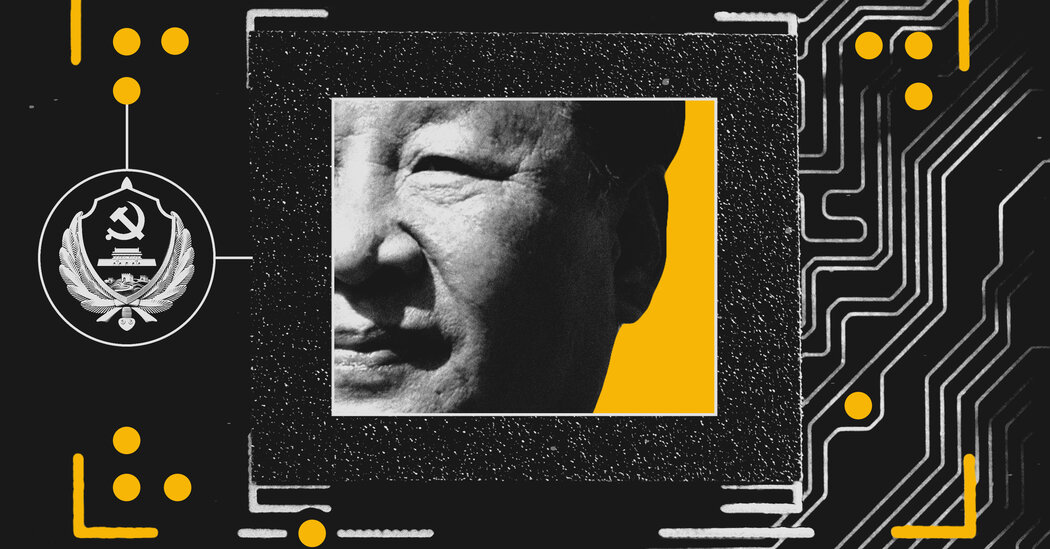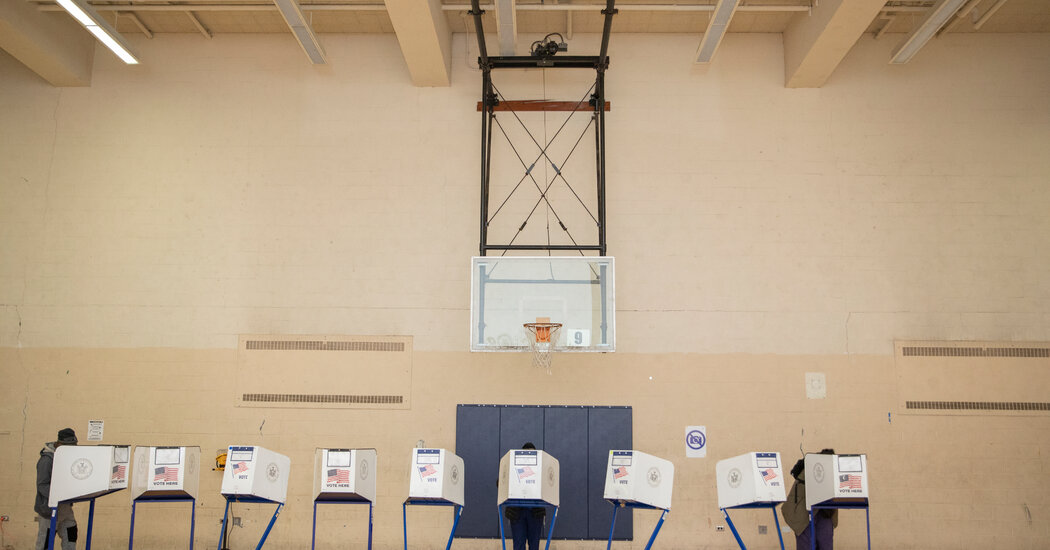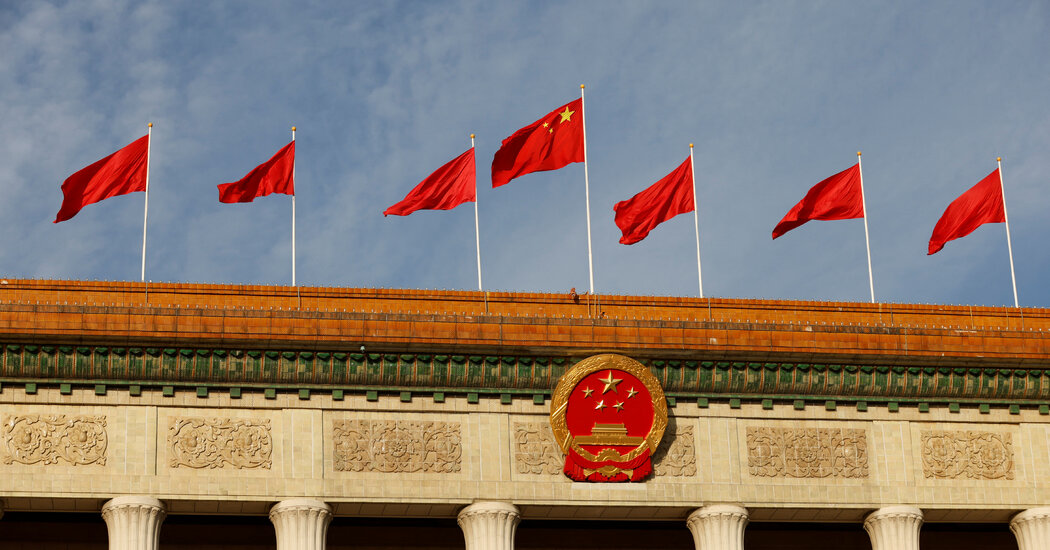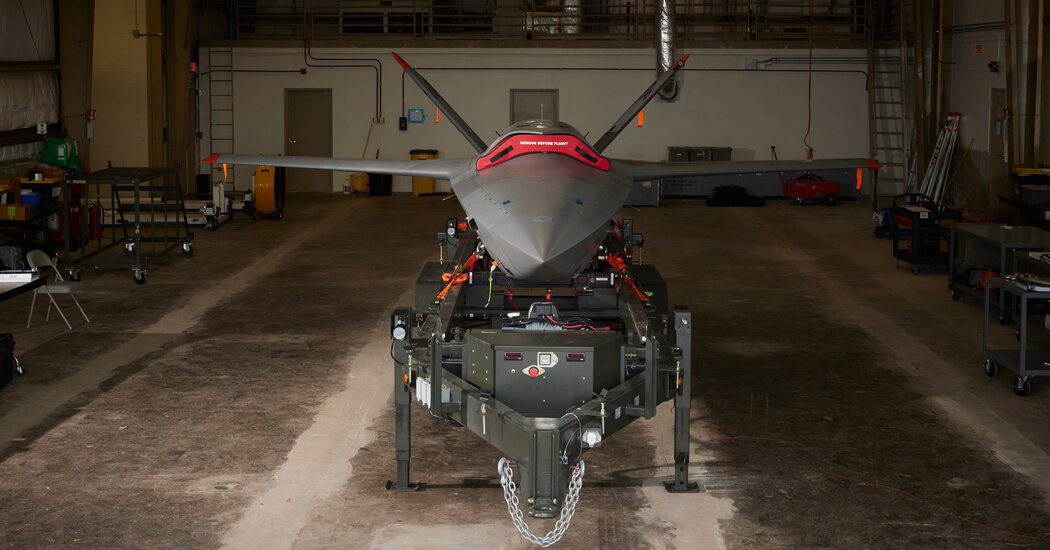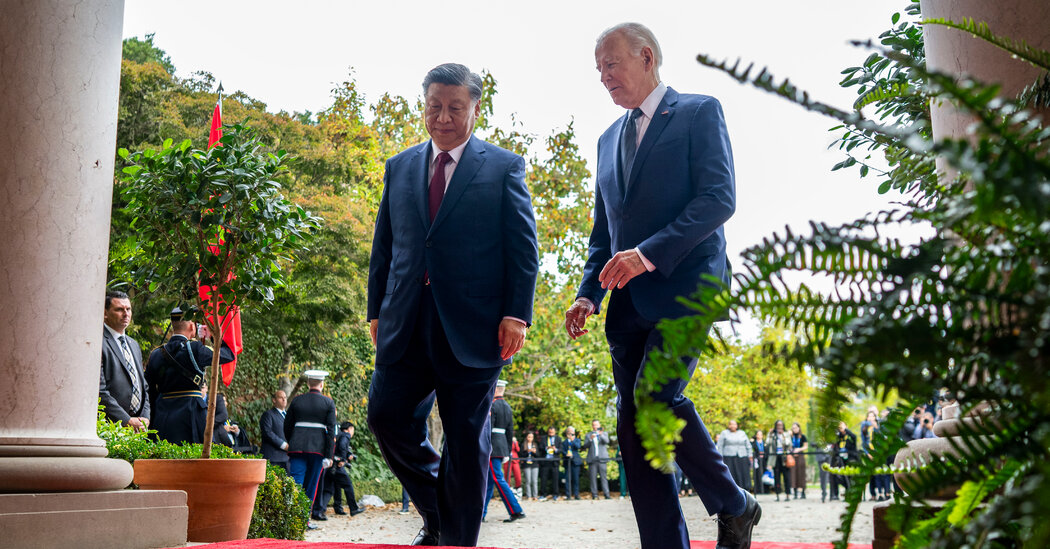A U.S. congressional committee has asked the Commerce Department to look into whether a giant technology company controlled by the ruling family of the United Arab Emirates should be put under trade restrictions because of its ties to China. The company, G42, specializes in artificial intelligence and other emerging technologies, and is overseen by Sheikh Tahnoon bin Zayed, the national security adviser of the Emirates and a younger brother of the country’s ruler. It has signed recent agreements with prominent American technology companies, including Microsoft, Dell and OpenAI. A Silicon…
Tag: Artificial Intelligence
Chinese Spy Agency Rising to Challenge the C.I.A.
The Chinese spies wanted more. In meetings during the pandemic with Chinese technology contractors, they complained that surveillance cameras tracking foreign diplomats, military officers and intelligence operatives in Beijing’s embassy district fell short of their needs. The spies asked for an artificial intelligence program that would create instant dossiers on every person of interest in the area and analyze their behavior patterns. They proposed feeding the A.I. program information from databases and scores of cameras that would include car license plates, cellphone data, contacts and more. The A.I.-generated profiles would…
How Russian and Chinese Interference Could Affect the 2024 Election
The U.S. government is preparing for its adversaries to intensify efforts to influence American voters next year. Russia has huge stakes in the presidential election. China seems poised to back a more aggressive campaign. Other countries, like Iran, might again try to sow division in the United States. As Washington looks ahead to the 2024 vote, U.S. intelligence agencies last week released a report on the 2022 midterm elections — a document that gives us some hints about what might be to come. Spy agencies concluded Russia favored Trump in…
Pro-China YouTube Network Used A.I. to Malign U.S., Report Finds
In a faintly stilted tone and with slightly awkward grammar, the American-accented voice on YouTube last month ridiculed Washington’s handling of the war between Israel and Hamas, claiming that the United States was unable to “play its role as a mediator like China” and “now finds itself in a position of significant isolation.” The 10-minute post was one of more than 4,500 videos in an unusually large network of YouTube channels spreading pro-China and anti-U.S. narratives, according to a report this week from the Australian Strategic Policy Institute, a security-focused…
Five Ways A.I. Could Be Regulated
Though their attempts to keep up with developments in artificial intelligence have mostly fallen short, regulators around the world are taking vastly different approaches to policing the technology. The result is a highly fragmented and confusing global regulatory landscape for a borderless technology that promises to transform job markets, contribute to the spread of disinformation or even present a risk to humanity. The major frameworks for regulating A.I. include: Europe’s Risk-Based Law: The European Union’s A.I. Act, which is being negotiated on Wednesday, assigns regulations proportionate to the level of…
Warnings Emerge Over Emirati A.I. Firm G42’s Ties to China
When the secretive national security adviser of the United Arab Emirates, Sheikh Tahnoon bin Zayed, visited the White House in June, his American counterpart, Jake Sullivan, raised a delicate issue: G42, an artificial intelligence firm controlled by the sheikh that American officials believe is hiding the extent of its work with China. In public, the company has announced its staggering growth with a steady cadence of news releases. They have included agreements with European pharmaceutical giants like AstraZeneca and a $100 million deal with a Silicon Valley firm to build…
What Are the Risks of A.I. Drones and Weapons?
Swarms of killer drones are likely to soon be a standard feature of battlefields around the world. That has ignited debate over how or whether to regulate their use and spurred concerns about the prospect of eventually turning life-or-death decisions over to artificial intelligence programs. Here is an overview of how the technology has evolved, what types of weapons are being developed and how the debate is unfolding. How new are these weapons? Eventually, artificial intelligence should allow weapons systems to make their own decisions about selecting certain kinds of…
A.I. Killer Drones Are Becoming Reality. Nations Disagree on Limits.
It seems like something out of science fiction: swarms of killer robots that hunt down targets on their own and are capable of flying in for the kill without any human signing off. But it is approaching reality as the United States, China and a handful of other nations make rapid progress in developing and deploying new technology that has the potential to reshape the nature of warfare by turning life and death decisions over to autonomous drones equipped with artificial intelligence programs. That prospect is so worrying to many…
What the Biden-Xi Talks Accomplished (and Didn’t)
Biden and Xi try direct diplomacy The mood music was upbeat but pragmatic after the first face-to-face meeting in a year between President Biden and his Chinese counterpart, Xi Jinping. There was no joint communiqué after Wednesday’s talks, but both sides issued positive statements trumpeting where they found common ground, including on tackling climate change and improving communications. The San Francisco summit, and Xi’s banquet with American business leaders afterward, were signs of how entwined the economies remain despite years of rising tensions — and why both sides and many…
The Race to Avert Quantum Computing Threat With New Encryption Standards
They call it Q-Day: the day when a quantum computer, one more powerful than any yet built, could shatter the world of privacy and security as we know it. It would happen through a bravura act of mathematics: the separation of some very large numbers, hundreds of digits long, into their prime factors. That might sound like a meaningless division problem, but it would fundamentally undermine the encryption protocols that governments and corporations have relied on for decades. Sensitive information such as military intelligence, weapons designs, industry secrets and banking…

